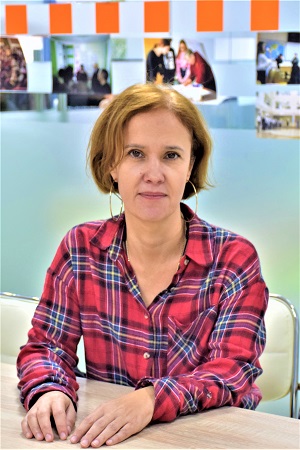Milana Rikanovic: “Rural women and girls are instrumental in building resilience of the Republic of Moldova to the global threats such as climate change”
Since 2008 the International day of Rural Women is celebrated on 15th of October. This year’s theme is “Rural Women and Girls Building Climate Resilience”, which highlights the important role that rural women and girls play in building resilience to face the climate crisis. This International day, according to the UN General Resolution on Improvement of the situation of women in rural areas, recognizes “the critical role and contribution of rural women, including indigenous women, in enhancing agricultural and rural development, improving food security and eradicating rural poverty.”Date:

Even though the Republic of Moldova has assumed a series of international and national commitments on promotion of gender equality, the Moldovan society remains patriarchal, and traditional relations between genders are especially pronounced in rural areas. The discrepancies are observed not only between women and men, but there also exists a difference between rural and urban women.
According to a national study1, women in Moldova represent one of the vulnerable groups being influenced by economical and social factors. The main economic factors influencing vulnerability of women are unemployment and pay gap between men and women, and the main social factors being human traffic and domestic violence. And the most affected by these factors are women from rural areas.
The environment, living conditions, number of stereotypes and standards accepted by the society as well as existing traditionalism regarding distribution of women’s and men’s roles in family and in society especially persistent in the rural localities of the country – all these explain vulnerability of rural women and girls in the Republic of Moldova.
Conform stereotypes in Moldovan society, man plays role of the head of family, but all that remains for woman is a major role in domestic work and unpaid care. At the same time poorer living conditions in the villages compared to the cities are affecting much the situation of rural women and girls. Rural households are less equipped with household goods compared to urban ones which means that housework occupies a considerable part of rural women’s time.
Besides this, rural women and girls in Moldova more frequently suffer from poverty. Even if poverty rate among rural women is reducing during last years, there is still a lack of workplaces in villages and remunerations are extremely low. As statistics shows, rural women represent 30% of Moldovan population and almost half of them are occupied in agriculture. Wherein Income from agricultural activity does not ensure living outside of poverty line. Among persons who work on their own in agriculture the highest rate of absolute poverty is observed, conform occupational status of rural women.
Rural women and girls play a significant role in agriculture, food security and nutrition, land and natural resource management and unpaid and domestic care work. Globally, one in three employed women works in agriculture.2 According to the Progress of the World’s Women 2015-2016 Report women also collect biomass fuels, manually process foodstuffs, and pump water. Around 80% of world’s households without piped water rely on women and girls for water collection.
In the agricultural sector of Moldova, women mainly are engaged in subsistence agriculture, which is the main source of food and income in many rural communities. In fact, a considerable number of women from the rural area who carry out independent activities, are mainly oriented towards producing of food for their own consumption in the household. In addition to the activities and occupations rural women have as employees or housewives, most of them are engaged in agricultural activities equally with men. But at the same time, women in Moldova manage an area of agricultural land much smaller than men, which constitutes only 19% of total. And the average size of farms run by women is smaller compared to those run by men.
Rural women are those who stand at the front of the battle lines in cases of threats for natural resources and agriculture. They contribute significantly to agricultural production, food security and nutrition, land and natural resource management, and building climate resilience. For example, a quarter of the total damage and loss resulting from climate-related disasters from 2006 to 2016 was suffered by the agricultural sector in developing countries, significantly impacting rural women and girls' food security and productive potential3.
And the Republic of Moldova is not an exception on this matter. Yearly rural and agricultural sector in Moldova is suffering because of climate change consequences which affect almost all aspects of people’s lives, especially women and girls. And one of the most effective ways to achieve progress on the threats caused by climate change is addressing gender inequality. Empowered women have greater capacity to respond to climate change and they play important roles in adopting low-carbon technologies, spreading knowledge about climate change, and urging action.
On this occasion I would like to make an address to all women in Moldova living in rural area – we stand for all Moldova women and girls and we request that contributions and strengths of rural women is recognized. You, rural women, are drivers of development in rural communities, you are the leaders of change, you are safeguarding the rights of people in rural communities, and it is time that we stand together and ensure that our joint voice is heard. On this day, let us celebrate the rural women and let us demonstrate that rural women and girls are instrumental in building resilience of the Republic of Moldova to the global threats such as climate change.
1 Study “Profile of Women from Rural Areas”/Maria Vremis, National Bureau of Statistics; UNDP, UN Women, 2016
2 International Labour Organization, “World Employment and Social Outlook: Trends for women 2017”
3 Food and Agriculture Organization (FAO), FAO’s Work on Climate Change: United Nations Climate Change Conference 2018 (2018).